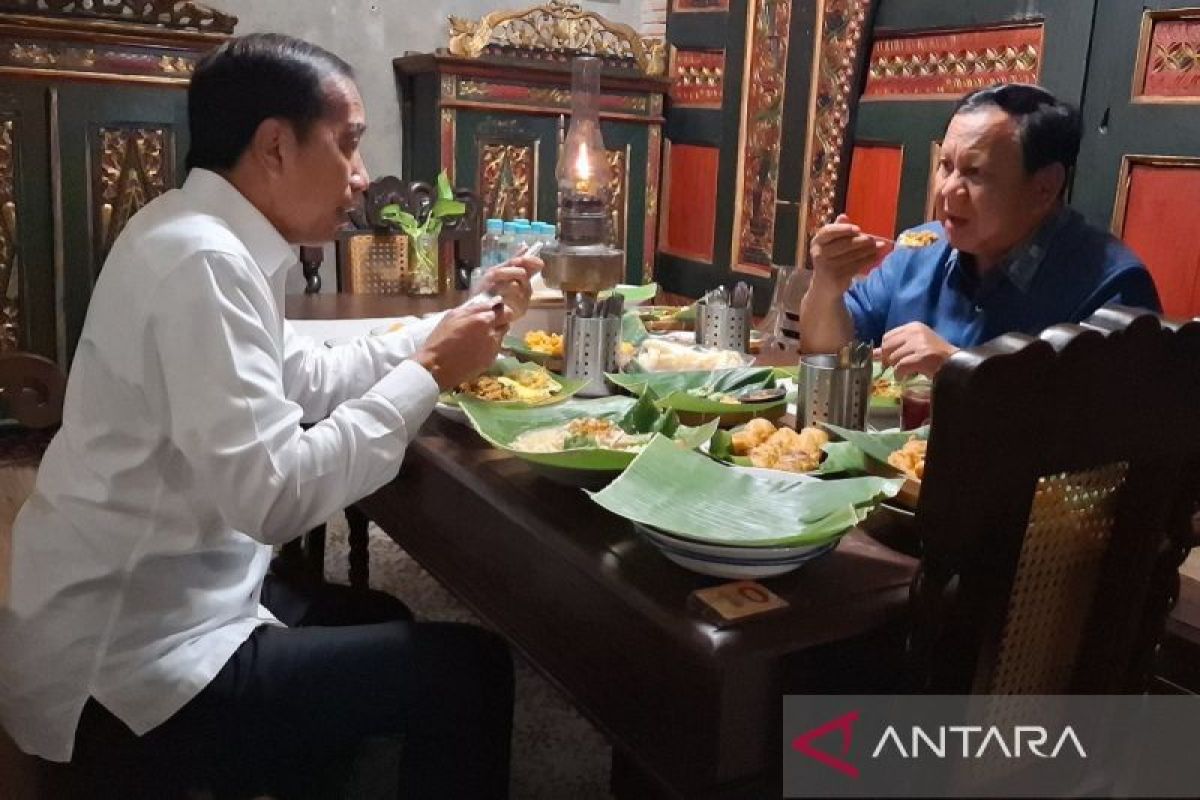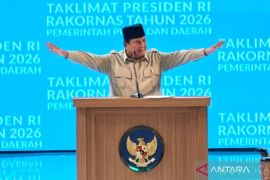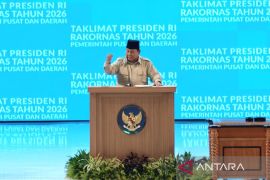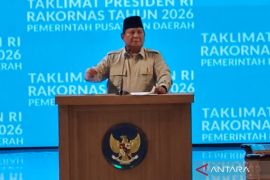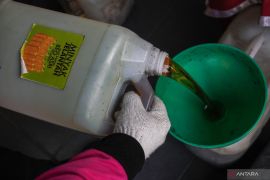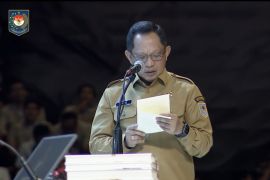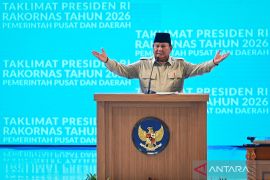The presidential transition ran smoothly as it had been prepared well with harmony between the two leaders.
Preparations for the transition began as soon as Prabowo was declared the President-elect by the General Elections Commission (KPU) on April 24, 2024.
Since then, Widodo, the seventh Indonesian president, involved Prabowo on many occasions, including welcoming visiting state guests.
For instance, on April 29, Widodo invited Prabowo to receive the then Singapore prime minister Lee Hsien Loong (now a senior minister) at the Presidential Palace in Bogor, West Java.
Widodo specifically wanted to introduce Prabowo as the President-elect to leaders of other countries.
On that occasion, Lee also introduced Deputy Prime Minister of Singapore, Lawrence Wong, who was set to replace him on May 15.
In addition to meeting global leaders, Widodo also often invited Prabowo, who was defense minister at that time, to attend limited meetings.
One of the most crucial ones was the limited meeting held on August 5 to discuss the 2025 draft state budget.
The meeting involved Prabowo, as the President-elect, to discuss inputs regarding the needs of the next government.
Widodo made it clear that he wanted to accommodate all the programs of the President-elect in the 2025 state budget.
Several months before the limited meeting, Widodo inaugurated several of Prabowo's "wingmen," such as Thomas Djiwandono, who was inaugurated as deputy minister of finance, and Hasan Nasbi, who was installed as head of the Presidential Communication Office.
Djiwandono, who is Prabowo's nephew, is the treasurer of the Gerindra Party, the political party led by Prabowo.
His joining the Cabinet streamlined adjustments for the government transition. He was among those who helped with the communication between the President-elect and Widodo's government.
Together with Finance Minister Sri Mulyani Indrawati, Djiwandono ensured that the needs of the next government were accommodated in the draft state budget.
Meanwhile, Nasbi indirectly played a role in preparing the patterns of communication of Prabowo's government for the public and media.
Widodo's Cabinet ministers
One day after his inauguration as the eighth president, Prabowo inaugurated the ministers and deputy ministers in his Red and White Cabinet at the State Palace.
Of the total 48 ministers, some previously held the same portfolios in Widodo's Cabinet.
Those ministers include Coordinating Minister for Economic Affairs, Airlangga Hartarto, Finance Minister Sri Mulyani Indrawati, State-Owned Enterprises (SOEs) Minister Erick Thohir, Home Affairs Minister Tito Karnavian, and Health Minister Budi Gunadi Sadikin.
They further include Marine Affairs and Fisheries Minister Sakti Wahyu Trenggono and Agriculture Minister Andi Amran Sulaiman.
Some were appointed again as ministers but with different portfolios. For example, Pratikno, who earlier served as state secretary minister was appointed as coordinating minister for human development and culture.
Agus Harimurthi Yudhoyono who previously served as agrarian and spatial planning minister was made coordinating minister for infrastructure and regional development by Prabowo.
Furthermore, Zulkifli Hasan, who served as trade minister, was appointed as coordinating minister for food affairs; and Bahlil Lahadalia, formerly the investment minister, was made the energy and mineral resources minister.
In addition, Budi Arie Setiadi who held the communication and informatics portfolio was appointed as the cooperatives minister.
The appointment of the ministers was completely the prerogative of Prabowo as the president.
His decision to include several ministers from Widodo's Onward Indonesia Cabinet can be seen as one of the efforts to realize sustainable government.
With the presence of ministers from the previous Cabinet, Prabowo can synchronize programs and policies of the government more easily, without hindering the programs that have been running well.
Continuity of programs
President Prabowo and Vice President Gibran Rakabuming Raka have emphasized their commitment to continuing several programs initiated by Widodo that have been running well.
Prabowo has frequently conveyed his commitment to continuing efforts to achieve food self-sufficiency, digitalization as well as downstreaming in various sectors.
He shares the same view as Widodo that food self-sufficiency, digitalization, and downstreaming can support the country's progress.
During Widodo's presidency, efforts to achieve food self-sufficiency involved building the irrigation system and dams, among others. Meanwhile, the downstreaming policy was rolled out for nickel, copper, and bauxite.
Furthermore, digitalization was also encouraged in several sectors, including by pushing for the implementation of the Electronic-Based Governance System.
Many programs whose foundation was laid by the Widodo government have been continued by President Prabowo.
Prabowo has continued the food self-sufficiency program through the development of new rice fields. He has expressed optimism that Indonesia will no longer import rice in 2025.
In several Cabinet meetings, he has frequently asked his ministers to boost digitalization and downstreaming, as well as reminded them of the importance of preventing all forms of corruption in the government.
Prabowo is also continuing the downstreaming program using strategies formulated during Widodo's administration.
Prabowo, on one occasion, recalled that the investment minister during Widodo's presidency, Bahlil Lahadalia, gave him 26 books on downstreaming planning.
He said that those books are now serving as guides for him in carrying out the downstreaming policy.
Maintaining communication
Prabowo has highlighted his respect for the work of the previous leaders in Indonesia, attributing the current accomplishments of Indonesia to the contribution of his predecessors.
To this end, he is maintaining good communication with Widodo.
In early November, Prabowo visited Widodo's residence in Solo. The two then had dinner at one of Widodo's favorite restaurants there.
Prabowo then invited Widodo to dinner at his private residence in the Kertanegara area of Jakarta in early December.
The meeting reflects that the communication between the two figures is still well-maintained.
Good communication among the elites provides hope to the public that the transfer of power ran well and of the sustainability of development toward a prosperous and advanced Indonesia.
Related news: Prabowo, Jokowi share dinner at Javanese restaurant in Solo
Related news: First meeting since inauguration, Prabowo and Jokowi reunite in Solo
Translator: Rangga Pandu, Raka Adji
Editor: Arie Novarina
Copyright © ANTARA 2024
